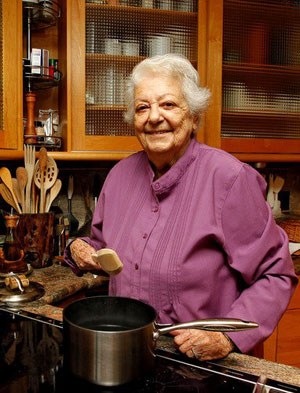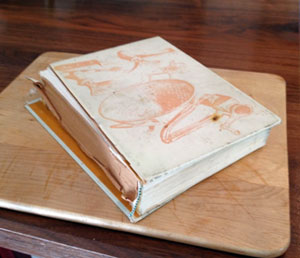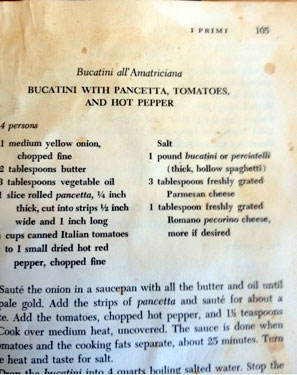 I once had a large collection of cookbooks. This was back in the days before every recipe by every chef in every language was available at the flick of a mouse. In those days we had books. When I’d buy a new cookbook I would read it cover to cover, like a novel.
I once had a large collection of cookbooks. This was back in the days before every recipe by every chef in every language was available at the flick of a mouse. In those days we had books. When I’d buy a new cookbook I would read it cover to cover, like a novel.
From page one I was hooked into the intriguing cast of characters; then I’d fret over them as they were crushed, peeled, pounded and quartered and then unceremoniously plunged into hot oil or boiling water. Imagine my delight when they emerged, reborn, reshaped by their trial by fire, to make the world a richer, tastier place to live. We had books in those days.
Now I keep just a few relics that reside on two small shelves in my kitchen. I have only the beauties, the books that hold more than recipes, the ones that document — stain-by-stain — my development as a cook and a human. I kept Julia, of course — although I rarely open it; Feasts For All Seasons, by Andries De Groot, which was my first cookbook and still a source of inspiration; and then there is Marcella, whose books are as vital today as when I first discovered them.
I bought Classic Italian Cooking in 1976 — the first Knopf edition. No, I take it back — I didn’t buy it; someone gave it to me and I can’t remember who it was. Anyway, thanks, you changed my life.
 The book jacket is long gone; the back and front covers are hanging by threads; the pages are torn and gravy-stained and I will have it with me forever. Marcella Hazan taught me — clearly and strictly, which is her style — about purity, freshness and simplicity; about the clean unmasked tastes that distinguish Italian food from other cuisines. I listened to her and I learned.
The book jacket is long gone; the back and front covers are hanging by threads; the pages are torn and gravy-stained and I will have it with me forever. Marcella Hazan taught me — clearly and strictly, which is her style — about purity, freshness and simplicity; about the clean unmasked tastes that distinguish Italian food from other cuisines. I listened to her and I learned.
Marcella was the first of many Italians who revealed to me that I’m an Italian — not by birth but by sensibility and desire. La cucina Italiana has been in my blood for centuries, as if my grandmother and her grandmother before her had grown up in fields of Emilia Romagna or on the coast of Campania rather than in a shetl in Lithuania where my actual bubbe kept her pots and pans.
 I first made Marcella’s version of bucatini all’Amatriciana in ’76 when my daughter was seven years old and my son was five years yet to be born. I’ve been making one version or another for them ever since.
I first made Marcella’s version of bucatini all’Amatriciana in ’76 when my daughter was seven years old and my son was five years yet to be born. I’ve been making one version or another for them ever since.
Her recipe is not classic because the dish is Roman and Marcella hails from the north. Romans would sneer at her addition of two tablespoons of butter.
Romans do use butter, by the way, they just don’t admit it. Marcella’s recipe also calls for pancetta rather than the preferred guanciale — I think because guanciale didn’t exist in America in those days. It barely does now.
But the recipe — the merry mix of bacon, onion, sharp cheese and hot pepper — is one of the two things in life I can never get enough of — my wife being the other.
Thank you, Marcella. Stanno mangiando meglio in cielo.
Michael Tucker is an actor and author whose recent novel is "After Annie." He writes about his love of food on his blog Notes from a Culinary Wasteland.

